If you fall behind on your mortgage in Virginia, you could lose your home much faster than you expect. Most people do not realize that Virginia allows lenders to foreclose without going to court, making the process quick and stressful.
Many homeowners feel confused and unsure about their rights during this time. This fast-track foreclosure process leaves little time to react or prepare. You might get just a few weeks’ notice before your home is sold.
Without the right information, you could miss your chance to save your house. To protect your home, you must know Virginia’s foreclosure steps, your rights, and what actions you can take. Learning these facts gives you the best chance to keep your property.
This blog will guide you through each step and show you how to respond. Read on to learn how this blog can help you understand and handle foreclosure in Virginia. We want you to feel informed and prepared.
Key Takeaways
- Virginia mainly uses a fast, nonjudicial foreclosure process requiring no court approval if the deed of trust includes a “power of sale” clause.
- Lenders must provide at least 14 days’ notice before the sale, delivered by certified mail, personal service, or property posting.
- The foreclosure sale is publicly advertised and conducted at a courthouse auction, with the property going to the highest bidder.
- There is no redemption period after foreclosure in Virginia; ownership transfers immediately once the sale is complete.
- Foreclosure can severely impact credit scores, and legal or HUD-approved counseling is recommended to understand rights and options.
Overview of Foreclosure in Virginia
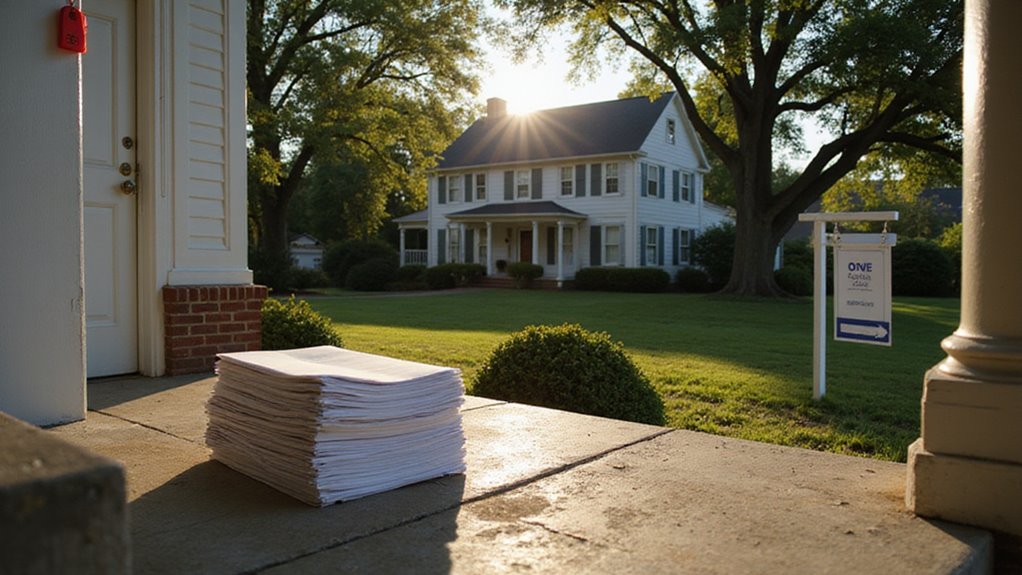
Foreclosure in Virginia happens when a lender takes your home after you miss mortgage payments. The process is usually fast and does not require going to court. Virginia uses a nonjudicial foreclosure process, which is different from some other states.
The lender will send you a notice of sale before taking further action. They must also advertise the sale to the public, as required by state law. If you have mortgage insurance, it may pay some of the lender’s loss, but it will not stop the foreclosure. It’s important to understand the title search process so you are aware of any liens or disputes that may affect the sale.
Lenders often order a property appraisal to know the current value of your home. This helps them recover the debt through the sale. If you receive a foreclosure notice, you should learn about your rights and possible risks right away. To potentially avoid foreclosure, you might consider fast sale options like working with cash buyers or iBuyers who can quickly purchase your property and help you settle your mortgage debt.
Judicial vs. Nonjudicial Foreclosure
Virginia usually uses nonjudicial foreclosure. This means your lender can take and sell your home without going to court. The lender only needs a “power of sale” clause in your deed of trust. If you inherit a property, understanding the probate process can also impact how foreclosure proceedings unfold.
Nonjudicial foreclosure happens quickly. You may have less time to find help or stop the process. This can make it harder to save your home.
Judicial foreclosure is different. The lender must get court approval before selling your home. This process is slower but gives you more legal protection.
The table below explains the impact of each process:
| Speed | Emotional Impact | Legal Protections |
|---|---|---|
| Fast | Stressful | Limited |
| Slower | Uncertainty | Greater |
| Unpredictable | Anxiety | Variable |
If you face foreclosure, knowing these differences can help you protect your rights. Some homeowners choose cash home sales to avoid foreclosure and move on quickly.
Common Reasons for Foreclosure
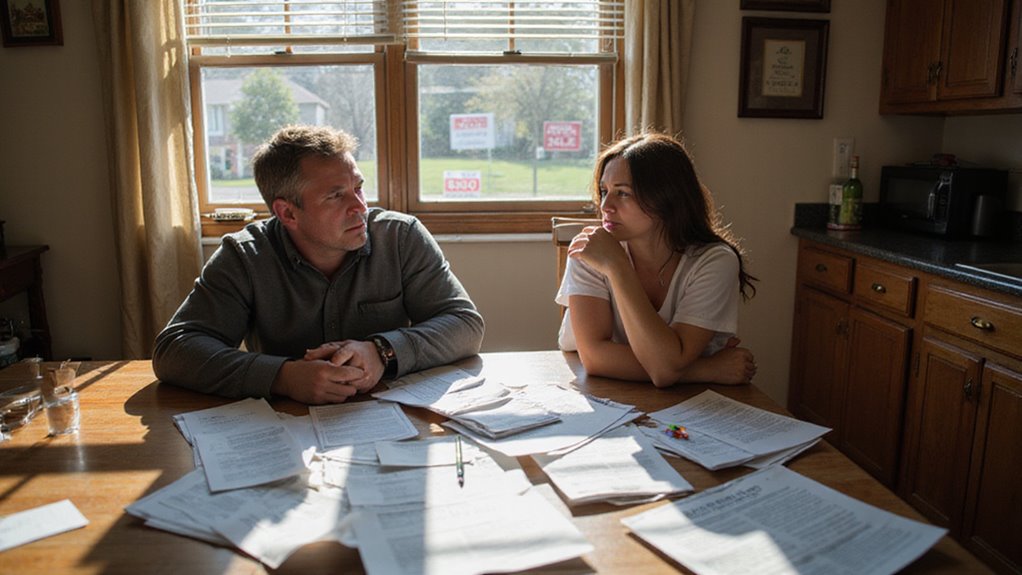
Lenders start foreclosure in Virginia when homeowners break the rules of their mortgage agreement. The most common reasons are missing payments, not paying property taxes, lacking insurance, or breaking other deed rules. If you know these reasons, you can better protect your home.
Most foreclosures happen when someone does not pay their mortgage on time. Nonpayment of property taxes can also lead to foreclosure since it creates a lien on your home. If you stop carrying required insurance, the lender may also start the process. In these situations, acting quickly and exploring foreclosure prevention options is critical to avoid severe financial and legal consequences.
Some deeds have special rules, called covenants, that must be followed. If you break these rules, the lender could foreclose. Knowing these risks helps you avoid mistakes that could cost you your home.
If foreclosure is a concern, fast cash offers from local buyers can help homeowners quickly resolve urgent financial issues and avoid losing their property.
The Role of the Deed of Trust
A deed of trust is a legal document that secures your mortgage with your property. In Virginia, lenders use a deed of trust instead of a mortgage. If you do not pay your loan, the deed of trust allows the lender to take your property. Sellers who need to move quickly often benefit from all-cash offers that can guarantee a sale without delays or financing contingencies.
This document involves three parties: the borrower, the lender, and a neutral trustee. The trustee holds legal title to your property as collateral. If you pay off your loan, the trustee gives the title back to you.
If you stop making payments, the lender can tell the trustee to start foreclosure. The trustee can then sell your property without going to court. This process is faster and simpler than a court foreclosure. Virginia law also requires strict state disclosure when selling a property, especially if there is significant damage or a history of issues like fire, to ensure buyers are fully informed.
Notice Requirements to Homeowners
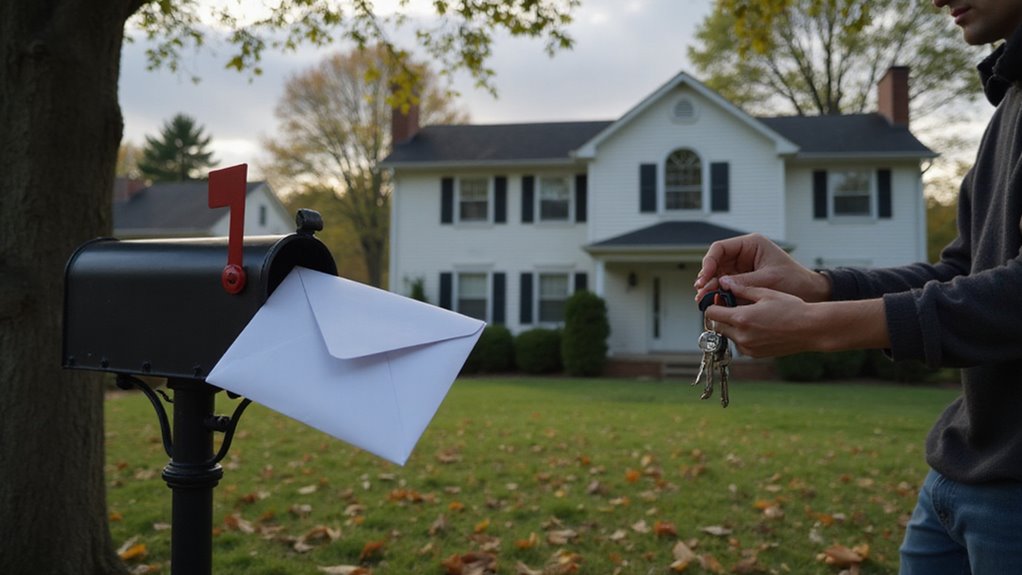
You must understand the strict timeline for initial default notification, as Virginia law mandates prompt written notice after a payment breach. Statutes also require specific pre-foreclosure disclosures detailing your rights and the lender’s intent to accelerate the debt. These notices must be delivered using methods prescribed by law, ensuring you receive timely and proper legal warning. It is also important to review your lien history early in the foreclosure process to identify any encumbrances that could affect your property rights or delay resolution. Additionally, being aware of court approval requirements in related real estate processes can help you anticipate and address potential legal hurdles during foreclosure.
Initial Default Notification Timeline
Before starting foreclosure in Virginia, lenders must follow a set timeline for giving notice. State law requires lenders to notify you when you miss payments. This first notice protects your legal rights.
Lenders must send a written notice explaining the missed payment and total amount due. They must give you at least 30 days to fix the problem. The notice must go to your last known address by certified or registered mail.
Lenders need to keep records showing they followed all notice rules. If you pay what you owe within the cure period, foreclosure may be avoided. If you do not respond, the foreclosure process continues.
Required Pre-Foreclosure Disclosures
Virginia law protects homeowners by requiring lenders to give clear pre-foreclosure disclosures. Lenders must send a Notice of Default before moving forward. This helps you understand your situation and options.
The Notice of Default explains why you are behind and how much you owe. It must include information about possible options, like loan forbearance. If you qualify, these options can pause or lower your payments.
Lenders must also tell you about bankruptcy protections. You have the right to seek help under federal bankruptcy laws before foreclosure. If you act quickly, you might avoid losing your home.
Clear disclosures allow you to make informed choices. Virginia law ensures you know your rights and possible solutions. This process gives you a chance to fix the problem before foreclosure happens.
Delivery Methods for Notices
Virginia law requires that homeowners get foreclosure notices in very specific ways. These delivery methods make sure you receive proper and timely notice. If you do not get notice the right way, your rights could be affected.
Certified mail is one approved delivery method. The notice must be sent with a return receipt requested to prove you got it. Personal service is another method where a sheriff or process server gives you the notice directly.
If certified mail or personal service does not work, the notice can be posted on your property. This means someone places the notice where you will see it. If your location is unknown, the notice may be published in a local newspaper.
These rules help protect your rights during the foreclosure process. Following these steps ensures everyone is properly informed. If you have questions, you should ask a lawyer for help.
Timeline of the Foreclosure Process
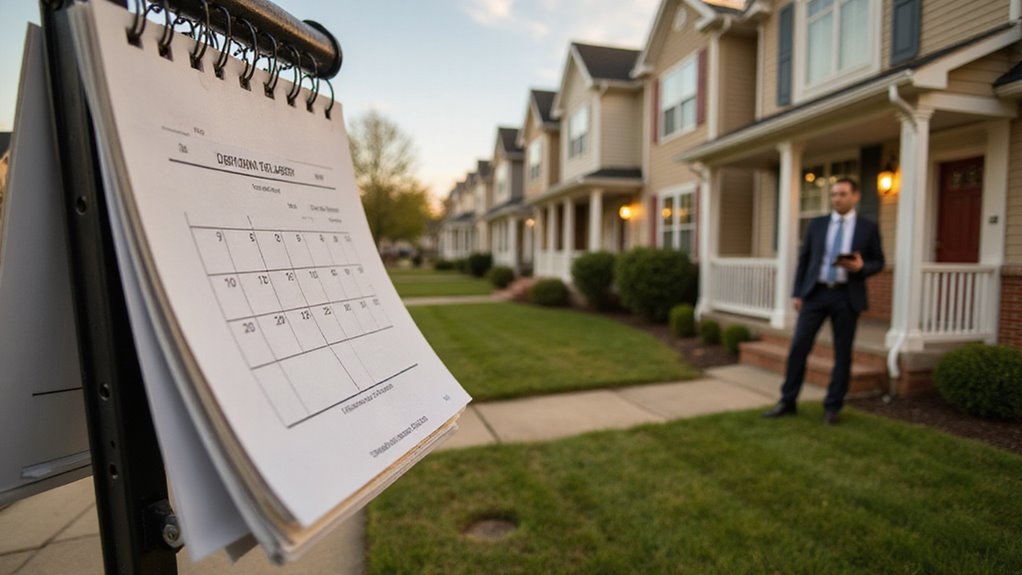
The foreclosure process in Virginia starts when a borrower misses mortgage payments. The lender sends a notice of default, which begins the legal process. Virginia law requires at least 14 days’ notice before a foreclosure sale. You may look into options like refinancing during this notice period. The lender, however, does not have to pause the process unless required by law. If you do not fix the default or reach an agreement, the process moves forward. The trustee must advertise the sale in a local newspaper for two weeks. Working with experts can help homeowners understand their rights and possibly explore alternatives to foreclosure. After the notice period ends, the property is sold at a public auction. The sale usually takes place at the courthouse steps, ending the foreclosure process. In some cases, low inventory levels in Virginia’s housing market can lead to homes selling more quickly even after foreclosure, as buyer demand remains high.
Pre-Foreclosure Options for Homeowners
As you face the risk of foreclosure in Virginia, you should evaluate legal remedies such as loan modification programs, short sale opportunities, and repayment plan agreements. Each option carries distinct eligibility requirements, procedural steps, and potential credit implications. Understanding these alternatives empowers you to make informed decisions and may help you avoid the loss of your property.
Additionally, acting quickly to explore pre-foreclosure options such as working with real estate agents, listing online, or considering cash buyers can significantly increase your chances of avoiding foreclosure and minimizing financial hardship. Sellers may also benefit from guaranteed sale solutions that offer quick, cash-based transactions, especially if traditional methods have not been successful.
Loan Modification Programs
You can protect your home before foreclosure by using loan modification programs. These programs change your current mortgage terms to make payments easier. If you qualify, a loan modification may help you avoid losing your home.
A loan modification does not replace your mortgage like refinancing does. It can lower your interest rate, extend your loan term, or cut your principal balance. If you want to avoid bankruptcy, consider this option first.
To start, contact your mortgage servicer and explain your financial hardship. You will need to provide documents about your income, expenses, and a letter explaining your situation. If your lender offers new terms, review them carefully and ask questions.
Once you accept the new payment plan, make sure you pay on time. If you miss payments, you might lose the protection. Always follow the new agreement to keep your home.
Short Sale Opportunities
A short sale may be an option if you are facing foreclosure. This process lets you sell your home for less than what you owe, but only with your lender’s approval. It can help you avoid the worse credit damage of foreclosure.
You must meet certain conditions to qualify for a short sale. Lenders require proof of financial hardship, proof that your home value has dropped, and evidence you cannot keep paying the mortgage. Common documents include a hardship letter, income statements, and a market analysis.
If your lender approves the short sale, it offers a legal way out of the situation. This can reduce the lasting impact on your finances. A short sale may also limit the risk of owing money after the sale.
Repayment Plan Agreements
If you are facing foreclosure, you may keep your home by using a repayment plan agreement. This option allows you to catch up on missed payments over time. You do not need to pay everything at once.
A repayment plan is available if you have a temporary financial problem. You must show your lender that you can make future payments. Lenders usually ask for proof of your situation.
The process begins with you sending a written request to your lender. You should explain your hardship and suggest new payment terms. The lender then reviews your request and checks your documents.
If both sides agree, they set up a new payment schedule. You must make extra payments each month until you are current. When you finish the plan, you return to your normal payment amount.
A repayment plan can help you avoid foreclosure and keep your home. It offers a structured way to solve past-due payments. If you follow the plan, you protect your homeownership rights.
The Foreclosure Sale Process
When a Virginia property enters foreclosure, the lender will usually sell it at a public auction. This happens after the owner misses payments and cannot catch up. The process follows Virginia’s legal notice rules.
All interested parties must receive notice before the sale. The property’s value is checked to help buyers decide their bids. If you want to buy the property, you cannot negotiate terms during the auction.
A trustee, named in the deed of trust, runs the auction. The property goes to the highest bidder, often the lender if no one bids higher. After the sale, the winning bidder becomes the new owner. Understanding asset distribution rules is important for buyers and sellers, as the proceeds from the foreclosure sale may need to be allocated according to Virginia law.
Rights of Redemption in Virginia
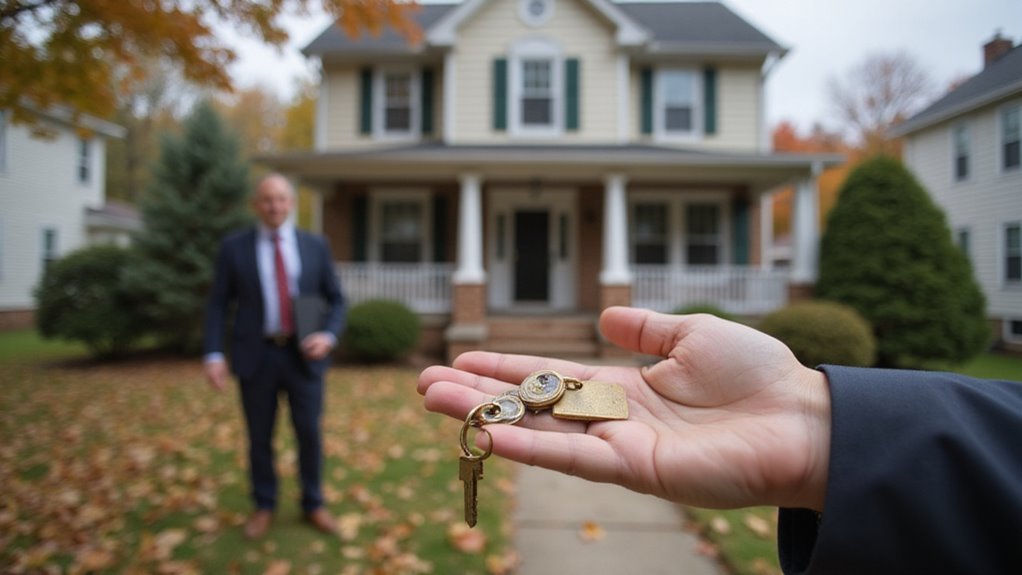
Virginia does not allow homeowners to reclaim their property after a foreclosure sale. There is no legal right to buy back your home once the sale is complete. Homeowners lose all rights to the property immediately after the foreclosure is finalized.
If you are facing foreclosure, you must act before the sale takes place. Virginia law does not offer a redemption period for residential properties. Any effort to reclaim your home after the sale will not succeed.
The new owner gains full property rights as soon as the sale ends. If you want to keep your home, take action before the foreclosure sale. Understanding these rules can help you protect your interests.
Impact on Credit and Future Homeownership
Foreclosure in Virginia harms your credit score and makes future homeownership harder. The foreclosure lowers your credit score by 100 points or more. It stays on your credit report for up to seven years. Foreclosure in Virginia can drop your credit score by over 100 points and remain on your record for seven years.
Credit bureaus record the foreclosure as a sign of serious financial trouble. Lenders see this as a broken promise to repay your loan. This record affects your chance of getting new loans or credit.
Most lenders require you to wait three to seven years before you can get another mortgage. During this time, you may face higher interest rates and strict loan rules. If you rebuild your credit, you can improve your chances of buying a home again.
If you work to manage your money and pay bills on time, you can slowly recover. Good financial habits help restore your credit profile. This effort is important if you want to own a home in the future.
Eviction After Foreclosure
After a foreclosure sale in Virginia, you can stay in the property only for a short time. The new owner, often the lender or a buyer, can legally remove you. Virginia law requires a formal eviction process after foreclosure.
The new owner must first give you a written notice to leave. This notice usually gives you 3 days to move out. If you do not leave, the owner can start a court case called an unlawful detainer action.
You will get a chance to explain your situation in court. If the court rules against you, the sheriff will handle your eviction. Renters have specific rights during this process, so it is important to know your options.
Buying a Foreclosed Property in Virginia
When you’re considering purchasing a foreclosed property in Virginia, you’ll need to follow specific procedures, from attending the trustee’s sale to perfecting title through court confirmation. It’s critical that you evaluate legal risks, such as potential liens, redemption periods, and undisclosed defects. Understanding these factors protects your investment and ensures compliance with statutory requirements.
Steps for Purchasing Foreclosures
Buying a foreclosed property in Virginia follows a strict legal process. You must follow each step carefully to avoid problems. If you skip any step, you could face legal or financial issues.
Start by researching foreclosed homes through listings and public auction notices. You should also check foreclosure statistics for market trends.
Next, investigate the title, check for unpaid liens, and inspect the property’s condition. Legal and financial checks help you avoid surprises.
If you decide to buy, attend the public auction with the required funds. Virginia law often requires payment at the auction or soon after.
After winning the bid, complete all legal paperwork and make sure the title is transferred to you. You must also follow the payment deadlines set by law.
Risks and Considerations Involved
Buying a foreclosed property in Virginia comes with legal and financial risks. You do not just win the auction and get the keys. Foreclosure properties often have hidden problems you must handle.
Foreclosed homes may have debts like tax liens or code violations attached. If you buy the home, you must fix these problems. The property is sold “as-is,” so you pay for any repairs.
If people still live in the home, you might need to file for eviction. New owners must take care of property maintenance right away. Legal advice can help you avoid costly mistakes.
Legal Protections and Resources
You can protect your rights during foreclosure in Virginia by knowing your legal protections and using available resources. Virginia law requires lenders to give you proper notice before starting foreclosure. This notice gives you time to look at your options.
You will receive a Notice of Trustee’s Sale before your home is sold. This allows you to consider refinancing your mortgage or paying off any property tax debt. Federal laws, like the Servicemembers Civil Relief Act, offer extra help if you are on active military duty.
You should carefully check all foreclosure notices for mistakes or missing information. If you have questions, consult an attorney who knows Virginia foreclosure law. A lawyer can explain your rights and guide you through the process.
You may contact a HUD-approved housing counselor for free advice about your finances. These counselors can help you explore repayment plans or refinancing with your lender. Taking these steps can help you keep your home or protect your interests.
Tips for Avoiding Foreclosure
You should immediately communicate with your lender to negotiate possible forbearance or repayment arrangements. Evaluate loan modification programs that may restructure your mortgage terms and provide financial stability. If foreclosure seems impending, retain legal counsel promptly to protect your statutory rights and assess all available defenses.
Communicate With Your Lender
If you are facing foreclosure, you should contact your lender as soon as possible. Early and honest communication can help protect your rights. Lenders may offer options to help you keep your home.
If you respond quickly to lender notices, you may avoid more serious problems. You should ask your lender for written details about help programs. Options can include new payment plans or mortgage refinancing.
It is important to keep records of all your talks with your lender. You must give honest information about your finances. This can help your lender find a solution that works for both of you.
Explore Loan Modification Options
Loan modification is a way to change your mortgage if you cannot avoid foreclosure. It lets you adjust terms like your interest rate or payment period to make payments easier. You should consider this option if talking to your lender does not solve your problem.
Lenders may offer lower interest rates or let you pay the loan over more years. Some programs also allow you to delay part of your loan balance if you have a hardship. You must show proof of your situation and send all documents quickly.
If you qualify for a hardship program, you might get short-term payment relief. Each option has different legal effects, so read any new contract carefully. If you agree to changes, you must follow the new terms to keep your home.
Seek Legal Assistance Promptly
You should talk to a lawyer as soon as you face a foreclosure threat. Early legal help gives you more options. If you wait, it may become harder to save your home.
A lawyer will check your case and explain your rights. You will learn about all possible solutions to avoid foreclosure. Quick action improves your chances of a better outcome.
Legal advice can show if mortgage refinancing is possible. An attorney may help you talk to your lender. If bankruptcy is considered, a lawyer explains how it may stop foreclosure.
Legal review of foreclosure notices checks if the lender followed Virginia law. An attorney helps protect you from wrongful actions. You may avoid costly mistakes with legal support.
A lawyer can also try to work out new payment terms with your lender. If you act early, you may get a loan modification or a repayment plan. Do not wait—contact a lawyer right away.
Conclusion
If you understand the foreclosure process in Virginia, you can make better decisions about your home. If you act quickly and know your rights, you may avoid losing your property. If you need help, legal counsel and reviewing all documents are important steps.
If you decide selling is the best option, we buy houses for cash in any condition. If you contact us early, you may avoid unnecessary stress and delays. If you want a fast and simple sale, this can be a good solution.
If you are facing foreclosure, we at Align Real Estate Solutions are ready to help. If you need answers or want to discuss your options, reach out to us today. We are here to support you through every step of the process.
Author
-

Zach Koops is co-founder and Real Estate Success Manager at Align Real Estate Solutions, serving homeowners across Virginia since 2024. With a passion for real estate and a heart for people, Zach has built his career around helping sellers navigate tough situations—foreclosure, inheritance, relocation, repair-overload—with clarity and compassion. He’s known for being straightforward, steady under pressure, and deeply invested in relationships. Outside of work, he spends his time as a husband and father, enjoys the outdoors in Shenandoah Valley, loves singing on stage, and constantly seeks growth through reading and new experiences.









